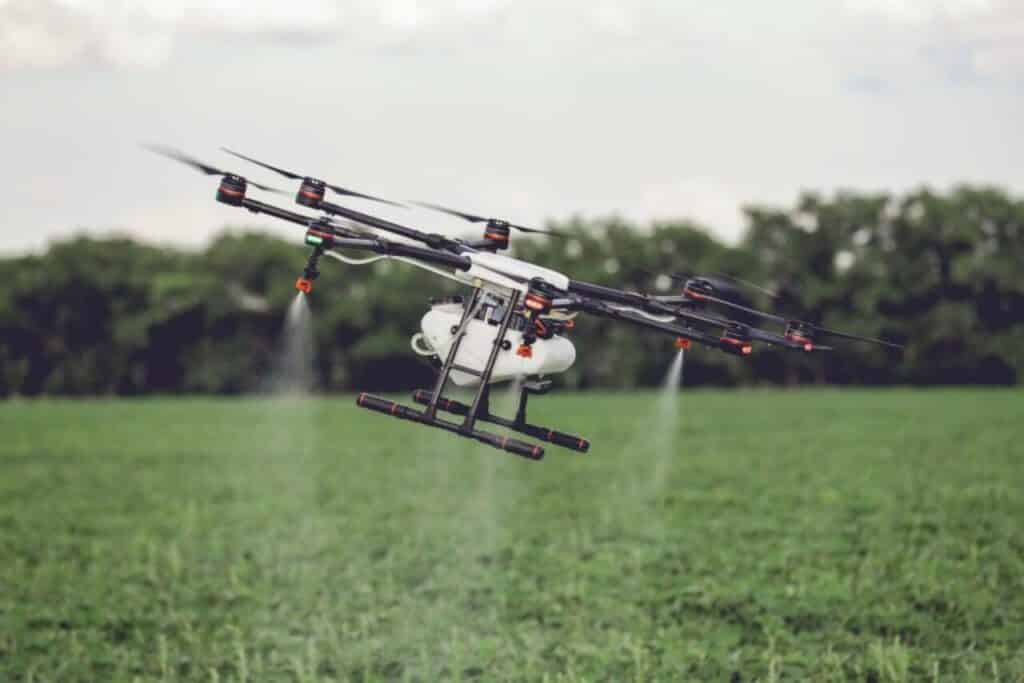
In terms of drone adoption, agriculture is now the second largest industry, after construction, with the market for agriculture drones reaching $1.3 billion. Market analysist’s have claimed that by 2026, the market for agriculture drones is set to reach $6.52 billion. The demand will continue to grow as the cost of drones decrease and as drone software in agriculture gets increasingly sophisticated.
Why Should You Use Agriculture Drones?
The main answer to this question is the overall efficiency, however there is more to drones than just that. Drones assist farmers in dealing with a wide range of challenges and reap a great number of benefits.
The majority of these benefits stem from eliminating any guesswork and reducing uncertainty. Farmers success depends on a number of factors that they have little or no control over such as weather, soil conditions, temperature, precipitation etc. the key to efficiency lies in their ability to adjust, which is impacted by a large extent of the availability of accurate real-time information.
With drones providing a vast pool of data to farmers, they can increase crop yields, save time, reduce expenses and act with further accuracy and precision.
As we are all aware, the world is fast paced, (especially within the drone industry!) and changes, alterations and transformations happen in almost a blink of an eye. Being adaptable to these changes is critical, and given the growing population and the global change of weather conditions, farmers will be required to utilise new-generation technologies to address emerging challenges.
How Can Drones Be Used For Agriculture?
-
Estimating Soil Conditions
Extracting this data had previously involved physical visits to the field and gathering metrics manually. Drones can collect and deliver this type of data due to the fact that they are equipped with agriculture smart sensors. They can do it in a much faster and more precise manner.
-
Planning Future Crops
The soil gets prepared for planting and a drone shoots seeds in it, rather than using outdated planting techniques. Although this approach is relatively new, some companies are experimenting and finding it to be successful. Drones can also spray fields with water, fertilisers/herbicides, reducing costs, manual labour and time spent on these processes.
-
Fighting Infections & Pests
Drones can detect field areas inflicted by weeds, infections and pests. Farmers can decide on the exact amounts of chemicals needed to fight infestations, and not only help reduce expenses, but also contribute to better field health.
-
Agriculture Spraying
Smart farms also use drones for agriculture spraying, which helps limit human contact with fertilisers, pesticides and other harmful chemicals. Drones are a fantastic alternative for farms that still use manual labour, drones can handle tasks faster and more efficiently.
Drones are also irreplaceable when it comes to spot treatment as they can detect infected areas with sensors and cameras and work on them whilst leaving the health part of the field intact. This method not only saves time but also increases safety and helps to reduce expenses.
-
Crop Surveillance
Agricultural fields occupy large areas, and it is often nearly impossible to estimate the overall state of crops. By using drones for agricultural mapping, farmers can stay updated on the health of plants in a particular area and indicated which field areas require attention.
To estimate the state of crops, drones inspect the field with infrared cameras and determine light absorption rates. Based on accurate, real-time information, farmers can take measures to improve the state of plants in any location.
-
Livestock Monitoring
In livestock farming, drones can keep an eye on the cattle which reduces the need for human workforce. By utilising thermal sensor technology, drones can find lost cattle, detect injured or sick animals, and calculate their exact numbers.
We encourage that you always check with your local aviation authority that you are complying with their regulations, as some authorities may have specific rules in regards to drone applications such as this.
Our commercial drone insurance service can provide cover for all of the tasks listed above. If you would like to obtain a quote, or speak to a member of the team, please do not hesitate to get in touch.
